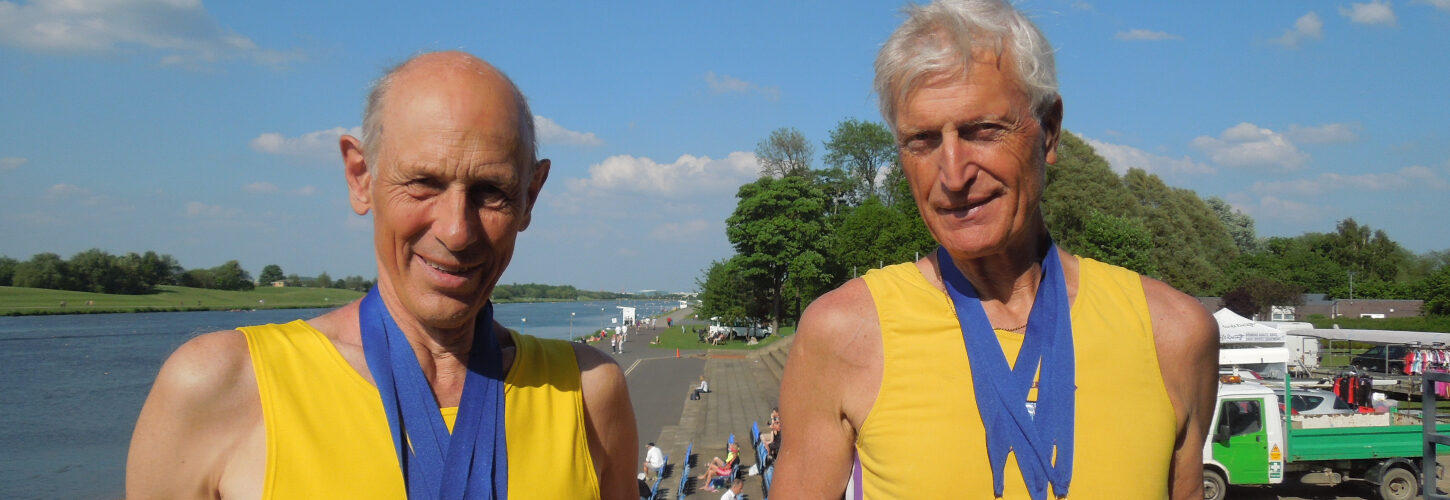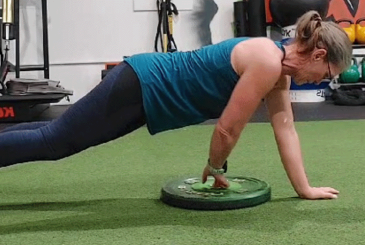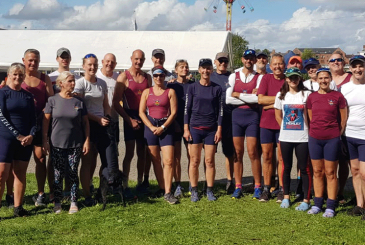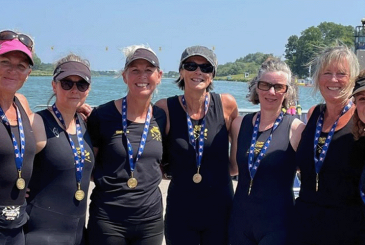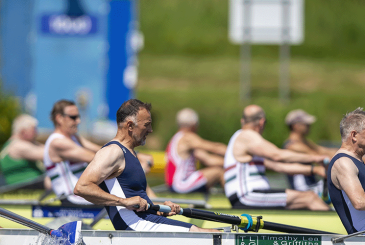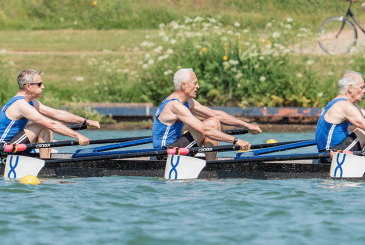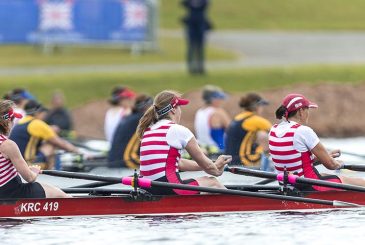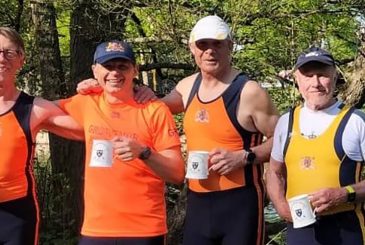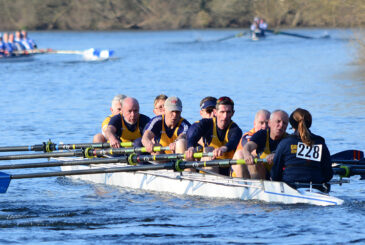Olympians Klaus Riekemann and Dr Arnold Cooke are legends on the masters’ circuit. They talk about training plans, lockdown and what the sport means to them below
Earlier this year Klaus Riekemann celebrated 60 years since he won his Olympic gold medal in the 1960 Rome Olympics at the age of 20. He then gave up rowing for 50 years and came back to it 10 years ago at Minerva Bath Rowing Club, where he has rowed a pair with Arnold Cook, winning numerous world master medals, as well as in a coxless four with Tony Stokes from Broxbourne and Tim Lincoln from Upper Thames RC.
We caught up with Klaus and Arnold to find out more and hear about their training.
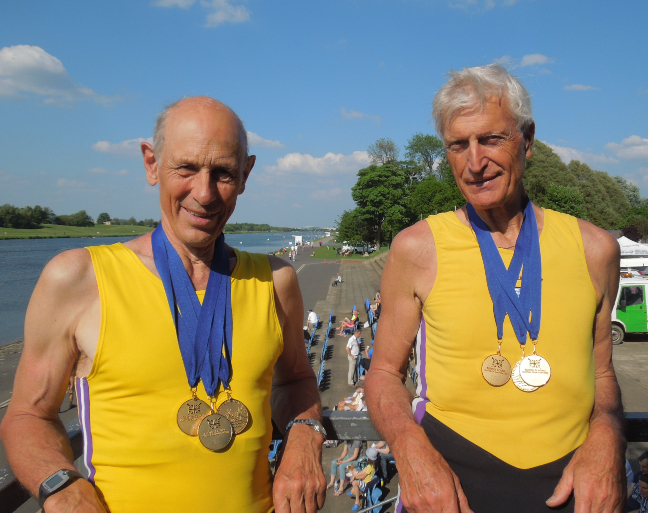
How did you both get into rowing?
Klaus: I’ve just turned 80 and have been rowing on and off (mainly off) for the past 60 years. I took up the sport at 17 at a local rowing club in the industrial Ruhr area of Germany where I grew up and three years later managed to win a gold medal at the Rome Olympics in a coxed four.
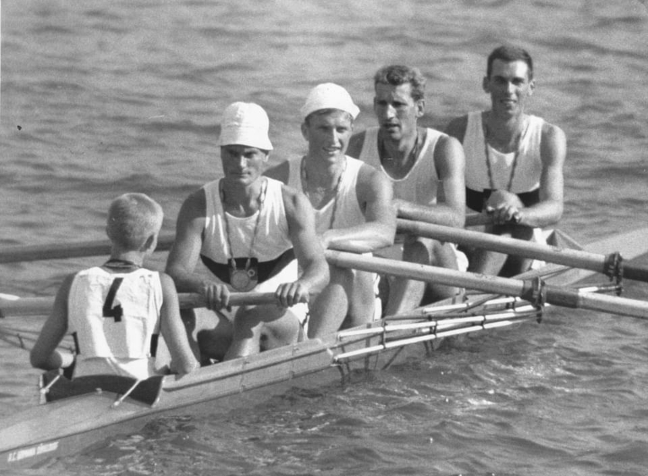
I rowed for a further year, then in 1961, after the European Championships in Prague, quit intensive rowing to put myself through college.
I say ‘intensive’ but I didn’t row again until 2011 when I ‘discovered’ Minerva Rowing Club in Bath, where I live now. As luck would have it there was another septuagenarian, Dr Arnold Cooke, who was keen to row with me and we began a partnership that has taken us to World, European and Henley Masters, National Championships and, with others, the Vesta Heads.
Arnold: On my side, I will be 80 next April. I rowed at school (King’s Chester), college (Jesus, Cambridge, including one year in the Boat Race), and a large number of clubs after that as I moved round the country with my work. Internationally, I double sculled in the Olympics (Tokyo), Worlds (Bled) and the Europeans (1963 and 1964, silver medal in 1964). I also won the Head of the River three times with Tideway Scullers.
I had a long period out of rowing until Minerva Bath RC advertised for a coach in 1987 and I was drawn back into competing as well. The club wanted me to win them a boat at the Leyland Daff Sprints (televised 1988 to 1990). I reached the final each year but was a little too ancient to have any chance of winning. However, it did draw me into masters rowing, with wins in the National and World Masters in 1988.
Since then, I have raced most years in Nationals, Henley Masters and World Masters, averaging three medals per year in the World Masters.
I was aiming to give up competition for lack of crews to row in without a great deal of travelling when Klaus turned up at Minerva. Having a pairs partner in Bath made all the difference to carrying on.
“It was likely my German family would turn out to watch, so losing wasn’t an option”
How did your partnership start?
Klaus: Poznan 2011 was our first World Masters together. We rowed in a pair and, in combos, with others, losing every race. At that point we could have given up. We were both in our early seventies and already had impressive track records but, somehow, the failure spurred me on. An analysis of our performance convinced me we were complacent, hadn’t trained efficiently and possibly weren’t fit enough.
The following year, the World Masters would be held in Duisburg where it was likely my German family would turn out to watch, so losing wasn’t an option. After Poznan we began a training regime that would produce a steady stream of gold medals over the next few years.
Arnold: Poznan, our first World Masters together, was a disaster – no wins – but all has gone well since then except my health has let me down from time to time.
Before Klaus came, I had missed one year, 2007, because of lymphoma and since then have missed 2013 (ventricular tachycardia, successfully ablated) and 2019 (pacemaker fitted).
Touch wood, all is okay at present except age is telling.
Can you tell us about your training programmes?
Klaus: The key issues have been to maintain fitness and train regularly. For me, that’s been regular gym sessions with a personal trainer focusing on weight resistance: pre-season that’s involved high weights and low repetitions with lower weights and higher repetitions during the season (March to October for me).
Until the Covid pandemic, I was at the gym every other day but, this year due to lockdowns, I’ve hardly been on the water.
Usually, in season, I try to be on the water two to three times a week in addition to my gym sessions. And then there’s erging – pre-lockdown, that was part of my gym workout but now I have an erg at home in my shed. It’s a bit of a hassle as I have to assemble it each time I use it – my wife has banned it from the living room – and erg outside.
“Rowing is a superb sport for staying healthy as well as developing strength, co-ordination and an appreciation of natural beauty which is a great stressbuster”
Arnold: My land training pattern is very different from Klaus. I have always tended towards shorter, high-intensity aerobic work.
While I do a certain amount of longish ergo work (5k or 30 minute pieces, total session length including warm-up and cool down rarely exceeds 40 minutes), my main work is interval type ergo sessions (typically 3x 4 minutes with 3 mins rest, 6x 500m with 1 min rest at 2000m pace).
When I could find suitable circuit training classes, my preferred circuits had ½ minute per exercise as hard as possible, move to a different muscle group for next ½ minute, no rest between exercises, maybe 12 exercises in each circuit, three circuits overall with no breaks between circuits. The leg exercises in a circuit tended to be very dynamic (squat jumps, burpees etc); arm and abdominal exercises similarly dynamic.
I now do rather more weight training (when my local gym is open) than previously as strength loss becomes a major factor with age.
However, I aim for strength endurance (weights around 50% of maximum, 20 or more repetitions per exercise, repeated 3x) rather than small repetitions of near maximum lifts. This is as much to protect my back as any other reason. My previous experience showed that this approach still increases or maintains strength, although more slowly than using maximum weights.
On the water, Klaus and I agree on doing shorter high-intensity work as opposed to long steady pieces. Outside lockdown, I would reckon on two or three water sessions per week, maybe more in the summer, but less ergo work.
In my younger days, I used to be able to train twice a day and recover between sessions. Up to maybe my mid-60s, I could recover with sessions every day, with one day off each week. Nowadays I need nearer two days to recover fully, but I can mix aerobic and weight training to increase the frequency of sessions.
And what about the future?
Klaus: I’m not ready to give up and hope that in 2021 regular rowing will resume.
Rowing is a superb sport for staying healthy as well as developing strength, co-ordination and an appreciation of natural beauty which is a great stressbuster.
While rowing on the Avon in Bath, we see fields and rolling hills, a watchful kingfisher, a pair of swans and, often, a mother duck and her ducklings. Lockdown is a lonely time, so I’ve been maintaining my strength in other ways – mainly intensive gardening – but hope that 2021 sees me back on the water!
For more great tips, watch our webinar on masters rowing – you can find out how here.


